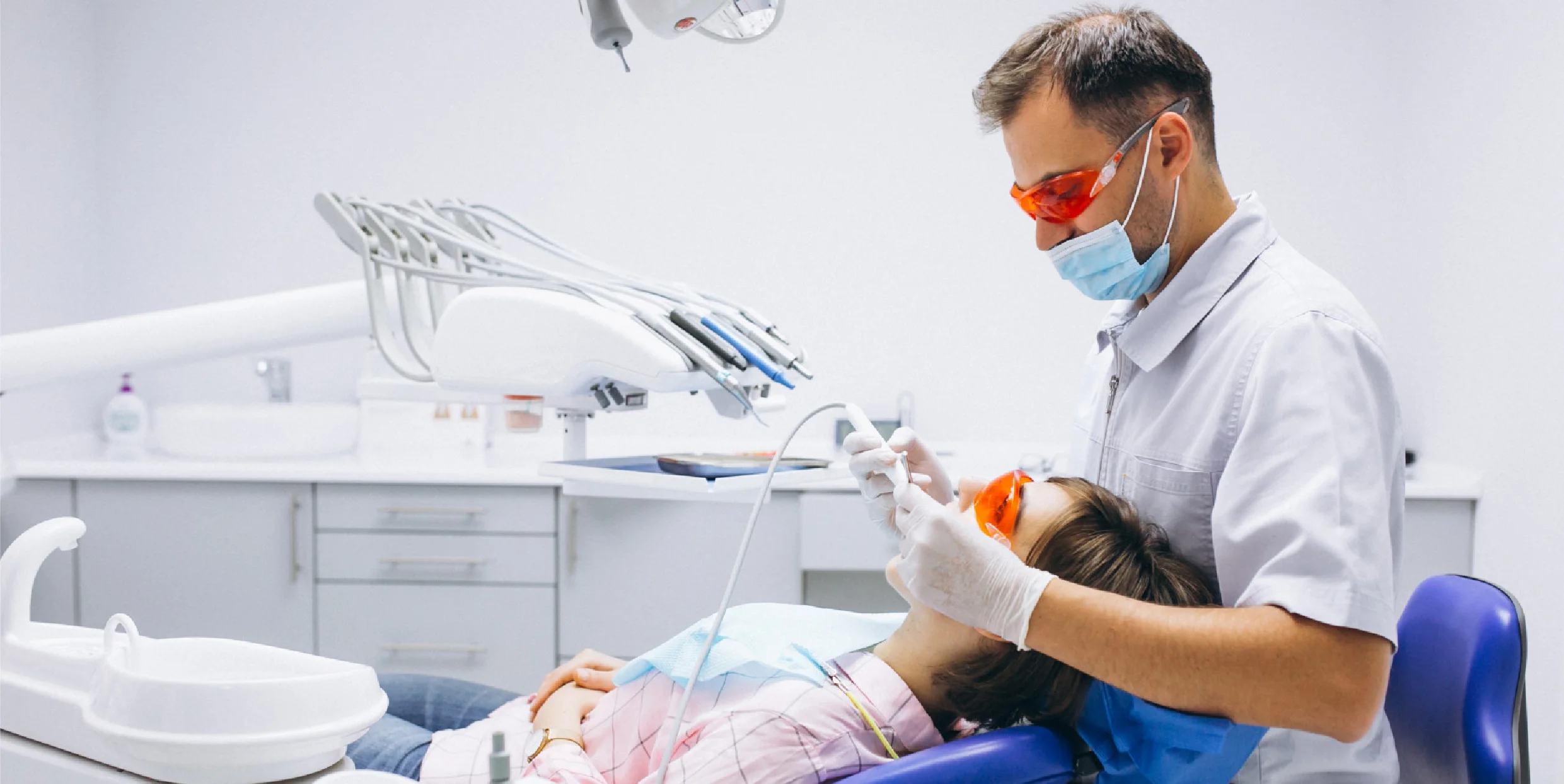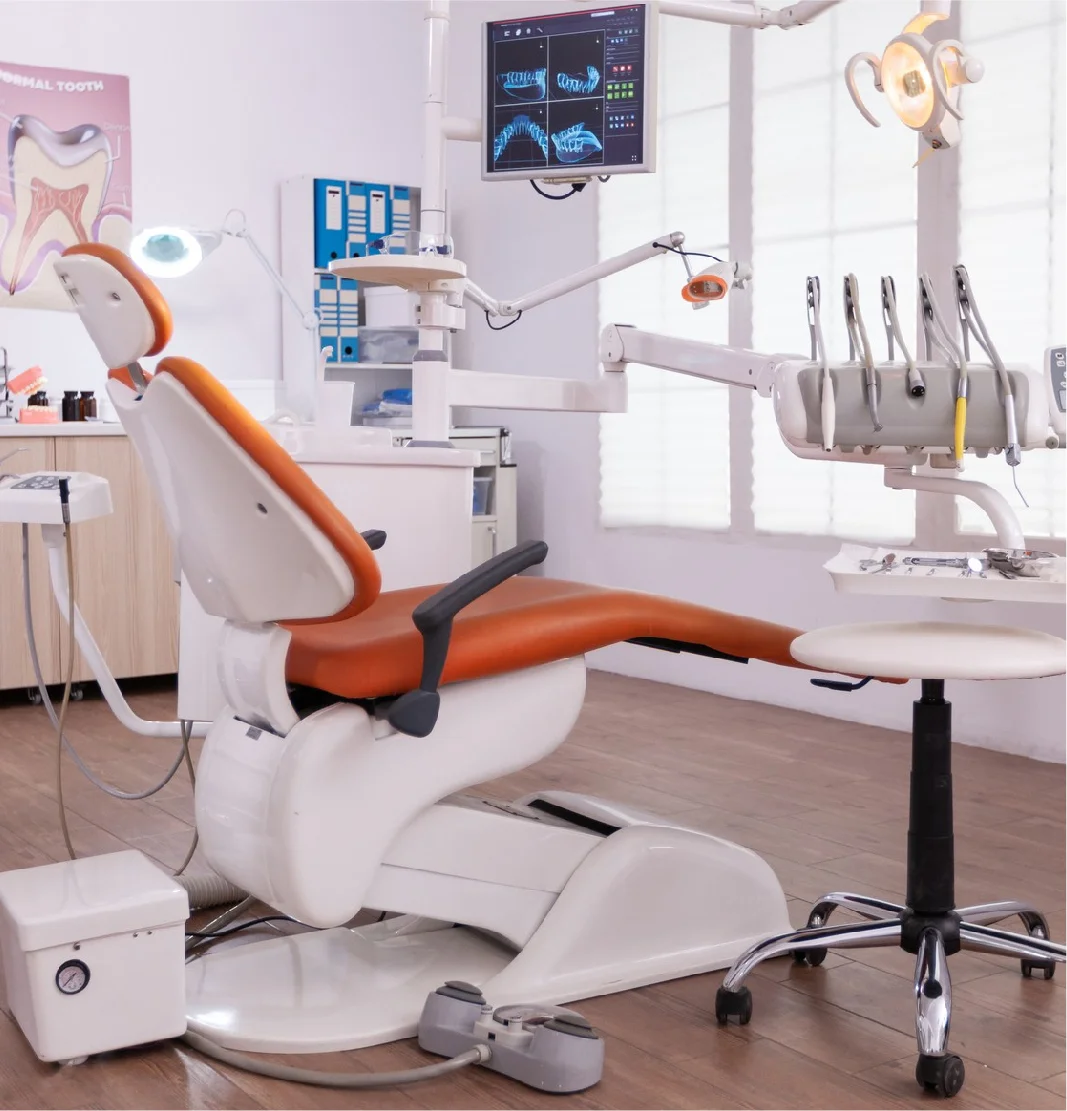
Welcome to Bhagwan Mahaveer Cancer Hospital & Research Centre (BMCHRC), a beacon of hope and healing for individuals confronting Dental & Maxillofacial Surgery. Our institution stands as a pillar of comprehensive care, where cutting-edge treatments merge with compassionate support to guide patients towards optimal health outcomes.
Welcome to Bhagwan Mahaveer Cancer Hospital & Research Centre (BMCHRC), where our Dental & Maxillofacial Surgery Services are committed to providing comprehensive, compassionate care for patients with oral and maxillofacial conditions. From routine dental procedures to complex reconstructive surgeries, our team of skilled surgeons and dental specialists are dedicated to delivering the highest quality of care with precision and expertise.

We utilize digital X-rays, cone-beam computed tomography (CBCT), and intraoral cameras to obtain detailed images of the oral and maxillofacial structures, enabling accurate diagnosis and treatment planning.

Our state-of-the-art surgical suites are equipped with advanced surgical instruments and monitoring equipment, allowing our surgeons to perform a wide range of procedures with precision and efficiency.

Our on-site laboratory facilities enable us to fabricate custom-made prosthetics, dental implants, and other devices to meet the unique needs of each patient.
Request a callback from our healthcare specialist
Oral and Maxillofacial Surgery is a specialized field of Dentistry that focuses on diagnosing and treating conditions affecting the Mouth, Jaws, Face, and Neck.
You should see an Oral Surgeon if you have any concerns or conditions related to your oral health, Jaw function, Facial Aesthetics, or Facial Trauma.
Common procedures include Tooth extraction, Dental Implant placement, Jaw Surgery, Facial Trauma repair, Oral Cancer treatment, and TMJ surgery.
Many Dental and Maxillofacial Surgery procedures are performed under Anesthesia or sedation, ensuring patient comfort during the procedure.
Recovery time varies depending on the type of procedure performed and individual factors such as age, overall health, and adherence to post-operative instructions.
Many Dental and Maxillofacial Surgery procedures may be covered by dental insurance plans, medical insurance, or a combination of both.
During your initial consultation, our Oral Surgeon will review your medical history, perform a comprehensive examination, discuss treatment options, and answer any questions you may have about your condition and proposed treatment plan.
To schedule an appointment, you can contact our Dental & Maxillofacial Surgery Services department directly or request a referral from your dentist or healthcare provider.
Yes, Oral Surgery is generally safe when performed by experienced, qualified Oral and Maxillofacial Surgeons in appropriate clinical settings.
Our team will provide detailed post-operative instructions and guidance on managing pain, swelling, and other common symptoms during the recovery period.
Like any Surgical procedure, Oral Surgery carries some risks, including bleeding, infection, nerve damage, and complications related to anesthesia.
Preparing for Oral Surgery may involve certain pre-operative instructions, such as fasting before surgery, discontinuing certain medications, and arranging for transportation to and from the surgical facility.
If you experience any complications after oral surgery, such as excessive Bleeding, Severe Pain, Swelling, or signs of infection, you should contact our office immediately for further evaluation and treatment.
Depending on the type of anesthesia used and the complexity of the procedure, you may need to arrange for transportation to and from the surgical facility on the day of your surgery.
Dental implants are designed to be a long-term solution for tooth replacement and can last for many years with proper care and maintenance.